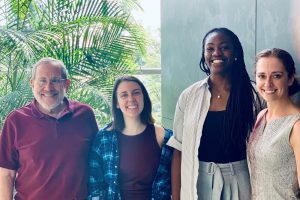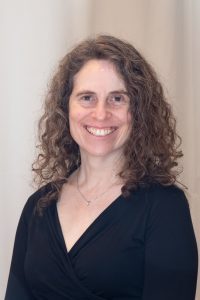Chan Zuckerberg Initiative (CZI) awarded a $2 million grant to a team, including Mass. Eye and Ear ophthalmology scientists, as part of a global research effort called the Human Cell Atlas.
Researchers at Mass. Eye and Ear and Harvard Medical School will take part in an ambitious global initiative to catalog all cell types in the human body. Specifically, this team will focus their efforts on developing the cell atlas of the human eye from birth to old age.
The Chan Zuckerberg Initiative (CZI) recently announced that it had awarded $68 million to scientists from 38 collaborative research teams. The groups of scientists span diverse disciplines studying a variety of human tissues in order to support the continued development of the Human Cell Atlas (HCA). The launch of CZI’s Seed Networks for a Human Cell Atlas enables participants, who are enrolled in the three-year projects, to focus on characterizing the gene expression profiles of single cells within specific healthy tissues. Their goal is to find reference information to learn more about disease.
The team responsible for building the cell atlas of the human eye received $2 million to support their work. The Mass. Eye and Ear researchers serving as co-principal investigators on this team are Ayellet Segrè, PhD, a statistical geneticist and associate scientist, and Tavé van Zyl, MD, an attending physician and surgeon on the glaucoma service.

“We are thrilled to participate in this global research initiative and honored to lead efforts focused on the eye,” says Dr. van Zyl. “Our hope is that this work will lay the foundation for a better understanding of ocular health and disease, and open up new avenues for diagnosis and treatment of conditions affecting vision.”
Dr. Segrè adds, “Profiling the genes expressed in the different cell types in the eye and detecting their genetic regulation holds great promise.” She goes on to say, “We hope to uncover new mechanisms and cell types for a range of rare and common eye diseases, which may lead to more effective therapies.”

Other co-principal investigators on the team include Professor Joshua Sanes, PhD, of Harvard University; Tomasso Biancalani, PhD, of the Broad Institute of MIT and Harvard; Dejan Juric, MD, of Massachusetts General Hospital; and Gregory Hageman, PhD, of the University of Utah.
The researchers will apply various cutting-edge technologies across the fields of molecular genetics and computational biology in their efforts to map the eye. Their methods, including single cell and single nucleus RNA-sequencing, have been developed and described in previous studies.
The Human Cell Atlas is a scientist-led initiative that has emerged as a collaboration among experts in biology, computational science and medicine. Investigators in the Seed Networks will have the opportunity to learn and collaborate with the community, as well as with CZI computational biologists and software engineers.
The Chan Zuckerberg Initiative was founded by pediatrician Dr. Priscilla Chan and Facebook founder Mark Zuckerberg in 2015. The goal of CZI is to leverage technology to help solve some of the world’s toughest challenges. For more information, please visit www.chanzuckerberg.com.
I HAVE ACUTE GLAUCOMA AND WOULD LIKE ANY FUTURE INFO THAT YOU WILL HAVE IN ANY AND ALL STUDIES RELATING GLAUCOMA. THANK YOU
My son lost vision in his right eye due to unsuspected glaucoma. Desperately searching for treatment such as stem cells to get his vision back.
Additionally, in the right eye pressure remains high, drops are not helping. Would love to speak to a Glaucoma Specialist who can help with that. Thank you.